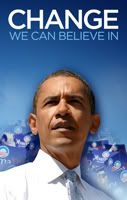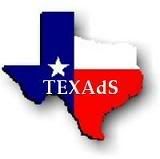Charles H. Bell and Thomas Hiltachk's law firm banked nearly $65,000 in fees from a California-based political committee funded almost solely by Bob J. Perry that targeted Democrats in 2006. Perry, a major Republican donor, contributed nearly $4.5 million to the group Swift Boat Veterans for Truth that made unsubstantiated but damaging attacks on Kerry three years ago.
The Perry-financed committee in California, the Economic Freedom Fund, continued to spend money this year, mostly on legal expenses tied to an ongoing legal dispute in Indiana over phone calls made to voters in 2006. It lists the Sacramento law office's address as its home and its Web site directs contributions to the firm, Bell, McAndrews & Hiltachk. In addition, Bell serves as the committee's treasurer.
And while Perry has not donated to their cause, his wealth and connections make him a potential financier for a drive that could cost more than $1 million. Running a statewide campaign would cost millions more..
[The initiative] would award two of them to the statewide winner and the rest, one by one, to the winner in each congressional district. Nineteen of the fifty-three districts are represented by Republicans, but Bush carried twenty-two districts in 2004. The bottom line is that the initiative, if passed, would spot the Republican ticket something in the neighborhood of twenty electoral votes-votes that it wouldn't get under the rules prevailing in every other sizable state in the Union.
That the Republicans are looking to manipulate elections that they can't win outright is hardly news. Neither is the revelation that a Texas sugardaddy may once again be handing out the goodies when the GOP opens its bag of dirty tricks. The good news is the grassroots is organizing to oppose this power grab.







1 comment:
The ballot measure to divide California’s 55 electoral votes by congressional district would magnify the worst features of our antiquated system of electing the President.
If the district approach were used nationally, it would less accurately reflect the will of the people than the current system. Although Bush lost the national popular vote in 2000, he won 55% of the country’s congressional districts. In 2004, Bush won 50.7% of the popular vote, but 59% of the districts. If the district approach were installed in only one large state such as California, it would greatly increase the chance that the winner of the presidential election would not have received the most votes nationwide.
The district approach would not, as claimed, make California relevant in presidential elections. Candidates have no reason to campaign in districts (or states) where they are comfortably ahead or hopelessly behind. Currently, candidates concentrate over two-thirds of their money and visits on just six closely divided “battleground” states, and 99% of their expenditures in just 16 states. Thus, two thirds of the states are ignored in presidential elections (including California). In California, the presidential race is a foregone conclusion in 50 of the state’s 53 congressional districts. Candidates would have no incentive than they do now to pay attention to California remaining 50 districts. Even if the district approach were used nationally, there are only 55 “battleground” districts that are competitive in presidential elections, so seven-eighths of the county would be left out of presidential elections. This is even worse than the current system, where two-thirds of the states are spectators.
A national popular vote is the way to guarantee that the candidate who gets the most votes in all 50 states becomes President. It is the way to make every person’s vote relevant, regardless of where that person lives.
The National Popular Vote bill would take effect only when enacted, in identical form, by states possessing a majority of the electoral votes—that is, enough electoral votes to elect a President. When the legislation is in effect in that sized group of states, all of the electoral votes in the participating states would be awarded to the presidential candidate who receives the most popular votes in all 50 states and the District of Columbia. Thus, the National Popular Vote bill would guarantee that the presidential candidate who receives the most votes in all 50 states will win the Presidency.
The bill has 320 legislative sponsors in 47 states. It has been signed into law in Maryland. The bill has passed by 11 legislative houses since its introduction in February 2006 (one house in Colorado, Arkansas, and North Carolina, and two houses in Maryland, Illinois, Hawaii, and California).
See www.NationalPopularVote.com
Post a Comment